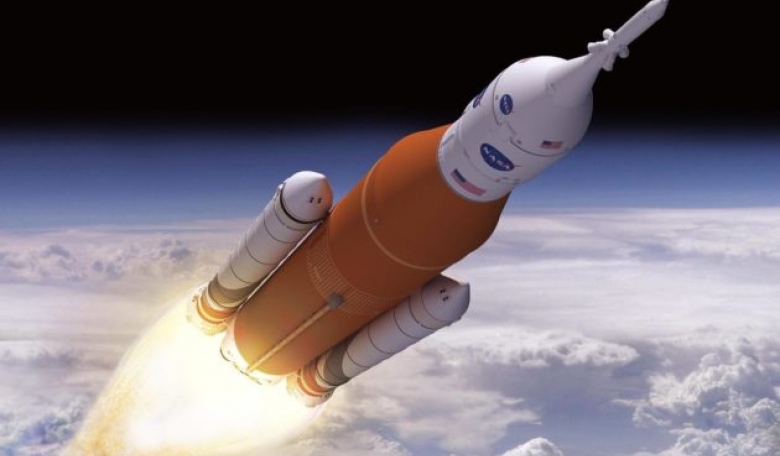New details about the testing of NASA’s Space Launch System (SLS) rocket seem to further erode the likelihood of the agency’s launching its Artemis 1 mission this year.
Following an initial report 31 August by Ars Technica of recent delays in testing of NASA’s first heavy-lift SLS rocket, NASA officials have described a scenario whereby the rocket could lift off, carrying the uncrewed Orion astronaut capsule for Artemis 1, in late December. However, Ars Technica’s sources indicated the launch likely won’t happen until mid-2022.
NASA will need at least three of the big rockets to achieve its goal of placing astronauts on the surface of the Moon by 2024. In the past, the agency has said a delay to Artemis 1 wouldn’t necessarily delay Artemis 2, a crewed test flight to lunar orbit planned for 2023, nor the 2024 landing of Artemis 3.
US Senator Bill Nelson, who took over as NASA administrator this year under President Joe Biden, has continued to predict that Artemis 1 would take off in 2021. Nelson hasn’t publicly denied the feasibility of a 2024 Moon landing, an intentionally ambitious goal set by the administration of former President Donald Trump.
However, in recent weeks a report by the NASA Office of Inspector General said NASA’s lunar spacesuits won’t be ready in time for the 2024 goal, while at the same time the agency has paused work on the Human Landing System for Artemis 3 to address a lawsuit by Blue Origin.
In a statement to Ars Technica, a NASA spokesperson cited both COVID-19 and “weather” as affecting the schedule - apparent references to a lack of liquid oxygen and the hurricane season in Florida, where the first SLS is being tested - along with “first time operations”.
The spokesperson confirmed testing was incomplete and that according to schedule it should have wrapped up in July. The Orion capsule had yet to be attached to the top of the rocket, and a mass simulator has instead been placed on top for testing.
Compared with its 2010 enactment into law, the first SLS is about five years overdue and, according to NASA’s revised cost estimate given in 2020, about US$3 billion over budget through Artemis 1. The rocket is reusing engines salvaged from the Space Shuttle programme, a feature of the SLS design mandated by members of Congress at the time, including Nelson, who represented Florida’s Space Coast. Future SLS’s will need newly built engines of the same design.
SLS rockets amounted to $27.3 billion in projected costs to the Artemis programme through 2025, according to an estimate released by NASA’s OIG in February 2021.
Auditors have repeatedly questioned management of the SLS contract and the performance of contractor Boeing, which is responsible in part for the design, development, testing, and production of the launch vehicle’s core stage and upper stages.











